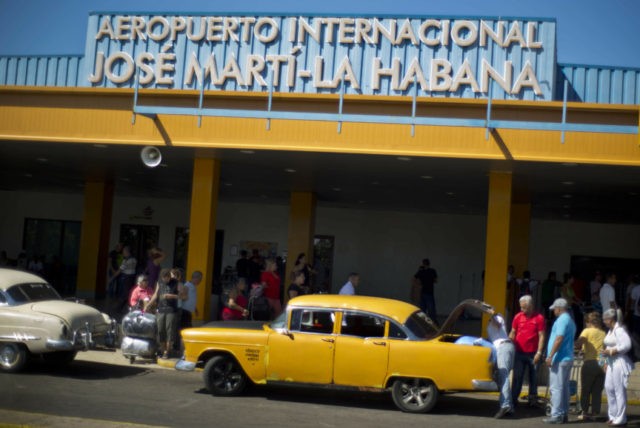U.S. Ends ‘People-to-People’ Educational Trave
Post# of 52118

< >

The U.S. Department of the Treasury announced Tuesday it would eliminate “people-to-people” educational travel to Cuba, an exception to the embargo expanded under President Barack Obama widely abused for tourism.
The announcement shortly followed dictator Raúl Castro’s 88th birthday.
A Treasury press release Tuesday stated that the agency would “remove the authorization for group people-to-people educational travel” but allow those who have already purchased an airplane ticket or otherwise confirmed their travel to Cuba by June 5 under this provision to complete their trips under a “grandfathering” provision.
The new restrictions would also ban the sales of “passenger and recreational vessels and private and corporate aircraft,” which had also been allowed under an exception benefitting those luxury businesses.
President Donald Trump banned “individual people-to-people” trips in 2017. The administration identified it as the category with the highest possibility for abuse by American would-be tourists. Tourism to Cuba is strictly banned because, since it is a communist country, the Castro regime owns all property on the island and all businesses. The Cuban military exclusively controls hotels, entertainment, and other tourist businesses and all profits from these go into upgrading military equipment to repress peaceful dissidents, shipping out Cuban military agents to help torture and kill dissidents in Venezuela, and other rogue terrorist activities.
Incidents of human rights abuses skyrocketed following the expansion of “people-to-people” in 2011.
To qualify for group “people-to-people” trips previously, Americans would have to go as a group with a tight itinerary of events meant to “enhance contact with the Cuban people” or “promote the Cuban people’s independence from Cuban authorities.” In reality, many of these trips advertised by promising authentic local tourist experiences such as enjoying art performances, food, or meetings with Cuban government agents in academia or hospitality.
“Cuba continues to play a destabilizing role in the Western Hemisphere, providing a communist foothold in the region and propping up U.S. adversaries in places like Venezuela and Nicaragua by fomenting instability, undermining the rule of law, and suppressing democratic processes,” Treasury Secretary Steven Mnuchin said in the Treasury’s announcement of the new policy. “This Administration has made a strategic decision to reverse the loosening of sanctions and other restrictions on the Cuban regime. These actions will help to keep U.S. dollars out of the hands of Cuban military, intelligence, and security services.”
National Security Adviser John Bolton, who has been integral in developing a policy that addresses the reality of the Cuban communist regime, celebrated the move on Twitter.
“The Administration has advanced the President’s Cuba policy by ending ‘veiled tourism’ to Cuba and imposing restrictions on vessels,” Bolton said, adding, “We will continue to take actions to restrict the Cuban regime’s access to U.S. dollars”:
 (0)
(0) (0)
(0)